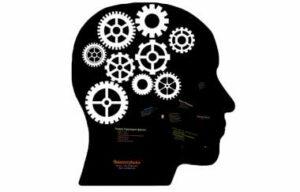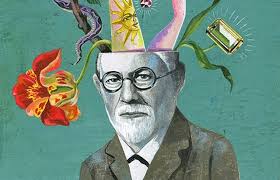Sigmund Freud is considered one of the most influential psychologists of all time. His work has been controversial, but it has also had a significant impact on psychology and other fields. In this blog post, we will discuss some of the key concepts in Freudian psychology and explore why it continues to be influential and are studied and discussed even today. We will also take a closer look at what Freudian psychology is and what it entails.
Contents
What Is Freudian Psychology?

Freudian psychology is a school of psychology that was developed by Sigmund Freud. It is based on the idea that human behavior is largely determined by unconscious processes. Freud believed that the unconscious mind was much more powerful than the conscious mind and that it influences our behavior in ways that we are not aware of. Freud’s work has been controversial, but it has also had a significant impact on psychology and other fields.
Key Concepts in Freudian Psychology
There are several key concepts in Freudian psychology that we will discuss in this blog post. Some of these include:
Psychoanalysis
Freud’s most famous technique, psychoanalysis is a method of therapy that involves exploring unconsciousness. This approach of therapy focuses on unresolved and suppressed trauma, which is said to be rooted in our unconscious mind. This can involve bringing up the past happenings through free association. Here, the client is encouraged to speak anything that comes to mind. Through these unfiltered thoughts, the therapist further connects the past to the present and works on resolving the client’s issues from a more informed perspective.
The Iceberg Metaphor
Freud believed that the human consciousness has three vertical categorizations. Like an iceberg, the top level is only a small chunk of what is present underneath. The three stages are as follows:
- Conscious Mind, known as the tip of the iceberg, consists of all the thoughts and behaviors that we are actively aware of. This is also the part of ourselves that we can control.
- Subconscious Mind is the middle part of the iceberg. It can be controlled and revived as per individual convenience. We can bring memories and thoughts back into our consciousness from this part of our mental structure.
- Unconscious Mind is what is believed to be under the surface. It is rightly called a reservoir of feelings, thoughts urges, and memories. These components are said to be outside of conscious awareness. Freud emphasized the importance of addressing the unconscious happenings to help relieve psychological distress.
Three Elements Of Personality
Freud proposed that the human psyche has three components that interact with each other to generate our behavior.
Id – It is the primary component of who we are. This is the central source of our desires and impulses. The id only focuses on seeking immediate fulfillment of its demands.
Ego- This component operates on the reality principle. It focuses on satisfying the id while being considerate of other components and seeks a middle ground.
Superego- It focuses on moral grounds. It is based on the internal representation of our principles.
Oedipus Complex
Freud also discussed the Oedipus complex, wherein a child experiences intense erotic desires for the parent of the opposite sex and feels jealousy and hostility towards the same-sex parent. This complex plays an important in personality development and maturation of sexual orientation.
Psychosexual stages of development
Freud proposed 5 stages of psychosexual development in humans as he considered childhood experiences as a crucial part of our behavior as adults. He gave 5 stages which
- Oral stage (0-1 years) where a child gets pleasure from oral fixation through sucking, licking, and putting things in their mouth.
- Anal stage (1-3 years) is where the child learns toilet training.
- Phallic stage (3-6 years) is when the child experiences the Oedipus complex.
- Latency stage (6 years-puberty) happens when the focus shifts to physical play and growth. Children also prefer to be around same-sex peers.
- Genital stage (beyond puberty) is the last stage wherein the individual starts experiencing sexual urges and explores them with partners of the opposite sex.
Defense mechanisms
Freud defines defense mechanisms as psychological strategies used to distort reality to protect ourselves from anxiety, confrontation, or hurt. They operate on a subconscious level and work to make things pleasant and bearable for the individual. Some common defense mechanisms we see in our daily life are:
- Denial: It is the denial of the truth to avoid facing harsh realities.
- Repression: Also termed as motivated forgetting, it means unconsciously pushing down thoughts that feel threatening, guilty, disturbing, and embarrassing.
- Projection: Herein, an individual attributes their unwanted thoughts onto others to avoid anxiety
- Displacement: This is when an individual release their emotions of one place onto others who may be unrelated to the situation.
- Rationalization: Here, a person uses facts and logical explanations to further excuse and relax.
- Reaction formation: This is when a person goes beyond denial and starts behaving in the opposite ways of what they believe in.
Why Is Freudian Psychology Still Relevant?

Even though Freud’s theories were developed over 100 years ago, they continue to be relevant even today. His ideas about the unconscious mind are still considered valid and accurate even today. His theories about human development are also considered some of the best explanations for how we grow and develop as individuals. Finally, Freud’s idea of psychoanalysis is still seen as one of the best methods for treating psychological problems.
Criticisms Of Freudian Psychology
Freud’s theories have been met with a lot of criticism. Some say that is it unscientific, while others find it sexist and limiting. His ideas have also been used to justify unethical actions. The methods employed to reach conclusions in Freudian psychology have been found dissatisfactory. It is also believed that the sex impulse impelled Freud to the creation of the system. Being hyper fixated on a single aspect of human personality also made his studies narrow and one-sided.
Conclusion
In this blog post, we have discussed some of the key concepts in Freudian psychology. We have explored why Freud’s work is still relevant today and why it continues to be studied and discussed by psychologists and other professionals around the world. We hope you have found this information helpful!
A Word From Therapy Mantra
Your mental health — Your psychological, emotional, and social well-being — has an impact on every aspect of your life. Positive mental health essentially allows you to effectively deal with life’s everyday challenges.
At TherapyMantra, we have a team of therapists who provide affordable online therapy to assist you with issues such as depression, anxiety, stress, workplace Issues, addiction, relationship, OCD, LGBTQ, and PTSD. You can book a free therapy or download our free Android or iOS app.


